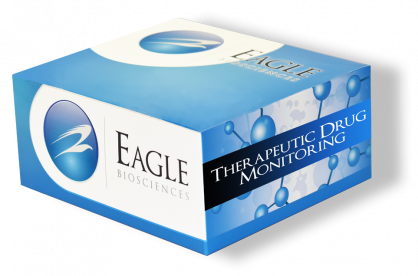Bevacizumab mAb-based ELISA Assay
The Bevacizumab mAb-based ELISA Assay is For Research Use Only
Size: 1×96 wells
Sensitivity: 2 ng/mL
Dynamic Range: 6 – 200 ng/mL
Incubation Time: 2 hours
Sample Type: Serum, Plasma
Sample Size: 10 µL
Alternative Names: Avastin Assay
Controls Included
Assay Principle
This ELISA is based on Bevacizumab-specific mouse monoclonal antibody (catcher Ab, ImmunoGuide clone MAY-2B5). Standards and diluted samples are incubated in the microtiter plate coated with IG-MAY-2B5 mAb. After incubation, the wells are washed. A horseradish peroxidase (HRP)-conjugated anti-human IgG monoclonal antibody is added and binds to the Fc part of Bevacizumab. Following incubation, wells are washed and the bound enzymatic activity is detected by addition of chromogen-substrate. The colour developed is proportional to the amount of Bevacizumab in the sample or standard. Results of samples can be determined by using the standard curve. Binding of Bevacizumab to the solid phase, pre-coated with MAY-2B5, is inhibited by human VEGF-A in a concentration dependent manner. Therefore, the ImmunoGuide Bevacizumab ELISA (mAb-Based) measures the free form of Bevacizumab.
STORAGE AND STABILITY OF THE KIT
The kit is shipped at ambient temperature and should be stored at 2-8°C. Keep away from heat or direct sun light. The microtiter strips are stable up to the expiry date of the kit in the broken, but tightly closed bag when stored at 2–8°C.
Related Products
Rituximab (Rituxan) ELISA (mAb-based) Assay
Golimumab (Simponi®) (mAb-based) ELISA
Certolizumab Pegol (Cimzia) (mAb-based) ELISA Kit



